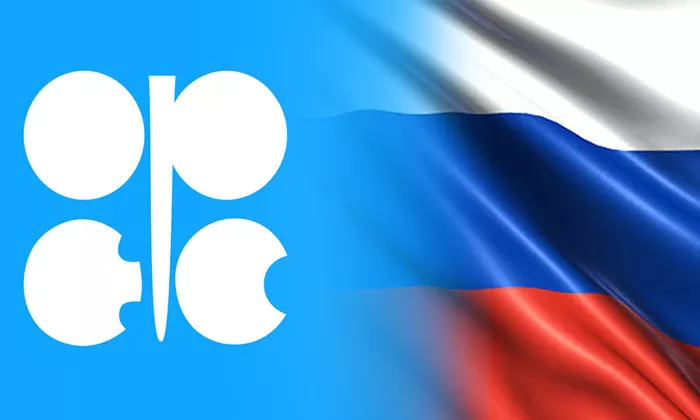The Organization of the Petroleum Exporting Countries (OPEC) is one of the most powerful groups in the global oil market. It plays a major role in controlling oil production and prices. Many people wonder if Russia, one of the world’s largest oil producers, is a member of OPEC. The answer is no—Russia is not a member of OPEC. However, it works closely with OPEC and has a strong influence on oil prices. This article will explain the relationship between Russia and OPEC, how they cooperate, and what it means for the global oil market.
What Is OPEC?
OPEC was founded in 1960 by five countries: Iran, Iraq, Kuwait, Saudi Arabia, and Venezuela. Over the years, more countries joined, and today, OPEC has 13 member countries. These countries control a significant portion of the world’s oil supply. OPEC’s main goal is to manage oil production and stabilize oil prices. By working together, OPEC members can influence the global oil market and protect their economies.
OPEC sets production targets for its members. If the oil supply is too high, prices fall. If the supply is too low, prices rise. By controlling output, OPEC tries to keep oil prices at a stable level that benefits producers and consumers.
Is Russia An OPEC Member?
Russia is not a member of OPEC. However, it is one of the biggest oil producers in the world. It competes with OPEC members like Saudi Arabia for market share. Despite not being an official member, Russia works closely with OPEC in a group called OPEC+.
What Is OPEC+?
OPEC+ is an alliance between OPEC and other major oil-producing countries, including Russia. This group was formed in 2016 to stabilize oil markets. OPEC+ includes OPEC’s 13 members and 10 other oil-producing nations. Russia is the most influential non-OPEC member in this group.
OPEC+ makes collective decisions about oil production to manage global supply. This cooperation helps avoid price crashes and market instability. Since 2016, OPEC+ has played a key role in balancing the oil market.
Why Did Russia Join OPEC+?
Russia joined OPEC+ to protect its oil industry. Before OPEC+, Russia and OPEC countries often produced too much oil, causing prices to drop. Low oil prices hurt Russia’s economy, which depends on oil exports.
By working with OPEC, Russia can influence production decisions and support stable prices. This cooperation benefits Russian oil companies and strengthens the country’s economy.
How Does Russia Work With OPEC?
Russia and OPEC hold regular meetings to discuss oil production levels. They agree on output limits to balance the market. Russia does not always follow OPEC’s rules strictly, but it generally cooperates to avoid price drops.
In times of crisis, Russia and OPEC work together. For example, during the COVID-19 pandemic, oil demand collapsed. OPEC+ made historic production cuts to prevent an oil price crash. Russia played a key role in this decision.
Key Differences Between Russia and OPEC Members
Although Russia works with OPEC, there are key differences:
- Russia is not a formal member – It is part of OPEC+ but does not follow all OPEC rules.
- Russia has different production goals – OPEC countries often limit output to control prices, but Russia prefers more flexibility.
- Russia has different political interests – OPEC is mostly made up of Middle Eastern and African nations, while Russia has its own global strategies.
Does Russia Benefit From OPEC+?
Yes, Russia benefits from OPEC+ in several ways:
- Stable oil prices – By controlling supply, Russia helps prevent price crashes that could hurt its economy.
- Stronger market position – Russia can influence global oil policies without being an OPEC member.
- Closer ties with oil-producing nations – Cooperation with OPEC strengthens Russia’s relationships with key oil exporters.
However, there are also challenges. Russia sometimes disagrees with OPEC on production cuts. It also competes with OPEC members like Saudi Arabia in global oil markets.
How OPEC+ Affects Global Oil Prices
OPEC+ decisions impact the global oil market. When the group cuts production, oil prices usually rise. When it increases production, prices often fall. These decisions affect gasoline prices, inflation, and economic growth worldwide.
For example, in 2022, OPEC+ cut production to support higher oil prices. This led to concerns about energy costs and inflation in many countries. The group’s actions are closely watched by governments, investors, and businesses.
Could Russia Join OPEC In The Future?
It is unlikely that Russia will become an official OPEC member. Russia values its independence in oil production decisions. Joining OPEC would mean following strict production rules, which Russia may not want.
Instead, Russia will likely continue working with OPEC+ while keeping control over its own oil policies. This allows it to benefit from cooperation without losing its flexibility.
Conclusion
Russia is not a member of OPEC, but it plays a major role in global oil markets. Through OPEC+, Russia cooperates with OPEC countries to manage oil production and stabilize prices. This partnership benefits both Russia and OPEC, helping to prevent market crashes and economic instability.
Although Russia and OPEC sometimes have different interests, their cooperation remains strong. The future of oil markets will depend on how well Russia and OPEC continue to work together.

